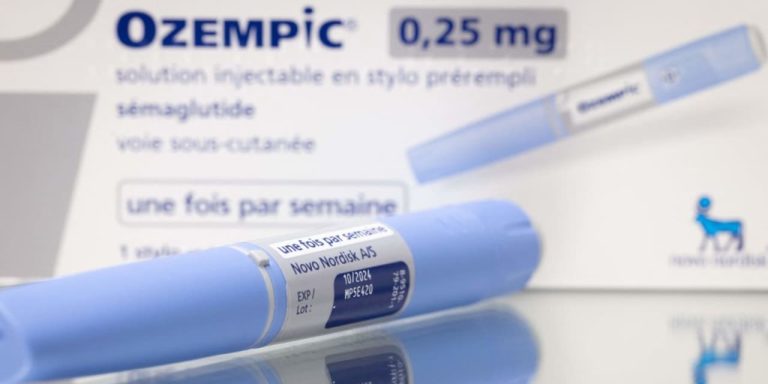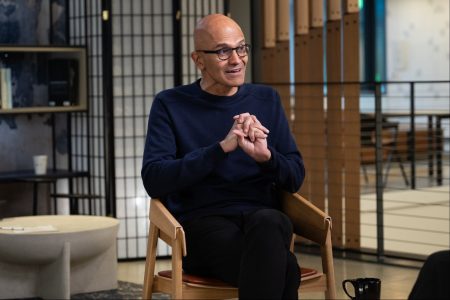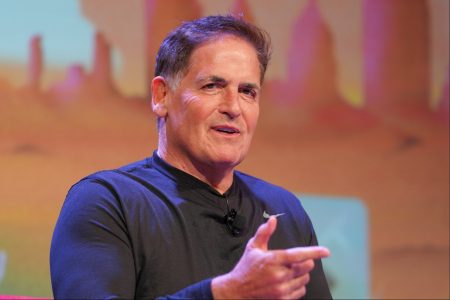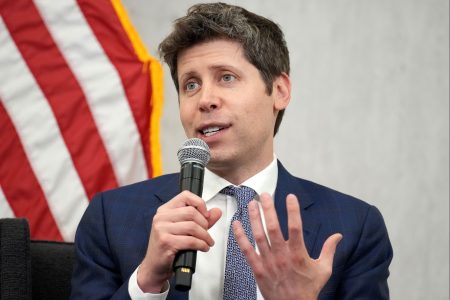Novo Nordisk stock rose in European trading Monday.(Photo by JOEL SAGET/AFP via Getty Images)
AFP via Getty Images
Data released Saturday confirm
Novo Nordisk
‘s weight loss drug Wegovy can cut the risk of strokes and heart attacks, but it won’t settle worries over the cost of the medicine.
At a meeting of the American Heart Association, Novo (ticker: NVO) presented the full results of a study of cardiovascular outcomes of patients on Wegovy it had released in abbreviated form over the summer.
The new details include nothing to undermine the notion that Wegovy and drugs like it will have significant benefits beyond weight reduction for overweight and obese nondiabetic patients. Scientists in the room responded with “multiple ovations,” according to Bank of America Securities analyst Geoff Meacham.
The trial, known as SELECT, found that Wegovy reduced by 20% the risk of cardiovascular death, nonfatal heart attacks, or stroke. Average weight loss was 9.4%, lower than in other Wegovy trials, due to trial-design choices meant to mimic how the drug would be used by actual patients. That was good news in terms of the cardiovascular benefit, indicating that better outcomes are achievable in real-world conditions.
There were also fewer serious adverse events in the group that received Wegovy than among those who received a placebo.
That is all good news for Novo, and for
Eli Lilly
(LLY), which received Food and Drug Administration approval for a similar drug called Zepbound last week. While both medicines have shown an impressive ability to reduce patients’ body weights in clinical trials, SELECT is the first to show broader health benefits in nondiabetics.
That is seen as key to convicing insurers, employers, and government health care providers to pay for the drug. But the full data from the SELECT trial won’t put to rest concerns about the cost effectiveness of Wegovy.
While the 20% risk reduction is a good result, the absolute difference between the placebo group and the one that received the drug isn’t high. Over the nearly 40-month trial, there were 701 incidents of death from cardiovascular causes, nonfatal heart attacks, or nonfatal strokes among the roughly 8,800 patients who received a placebo. That compares with 569 among the similar number of patients who received the drug.
That is a difference of 1.5 events per 100 people, for a drug that costs $1,349 a month. As the cardiologist Eric Topol wrote in a blog post published Saturday, “the absolute reduction… is quite low, especially given the high risk of the population and the high cost of the drug.”
Wall Street analysts acknowledged that cost effectiveness will remain a matter of discussion. “The discussions around financial cost of covering Wegovy will undoubtedly reverberate across global government and private health insurance entities in the months to come,” William Blair analyst Andy Hsieh wrote in a note out Monday.
Cost is a particular concern because so many people—a significant segment of the U.S. adult population—could benefit from the drugs. A New England Journal of Medicine editorial published Saturday said the trial “provides a welcome treatment option that can be extended to millions of additional patients.” J.P. Morgan analyst Chris Schott wrote Sunday that he expects the obesity drug market to be more than $50 billion per year by 2030.
Such widespread use raises the threat of a healthcare spending crisis in the U.S. Zepbound’s list price is slightly cheaper than Wegovy’s, but it still costs $1,059 per month, or nearly $13,000 a year. Employers and insurers will face pressure to cover the medicines, and will need to wrestle with who gets access to them, and what it will mean for premiums.
TD Cowen analyst Michael Nedelcovych pointed to one bit of data from the trial that could strongly bolster the case for insurer coverage. The cardiovascular benefits in patients who received Wegovy were seen quickly, before patients actually saw their weights drop. That implies that the cardiovascular benefit derives not just from the weight loss, but from some other mechanism. That could help convince insurers that the drug will offer near-term health benefits.
“It improves the health economics argument, especially for private benefits managers who may be reticent to cover a therapy for which cost offsets may not be realized for years,” Nedelcovych wrote.
While the SELECT results were the subject of extensive debate by healthcare investors over the weekend, a consenus about what they will mean has yet to emerge. Novo Nordisk shares rose early on Monday, but were down 1.8% at midday. Shares of Lilly fell 1.1%.
Write to Josh Nathan-Kazis at [email protected] and Callum Keown at [email protected]
Read the full article here









